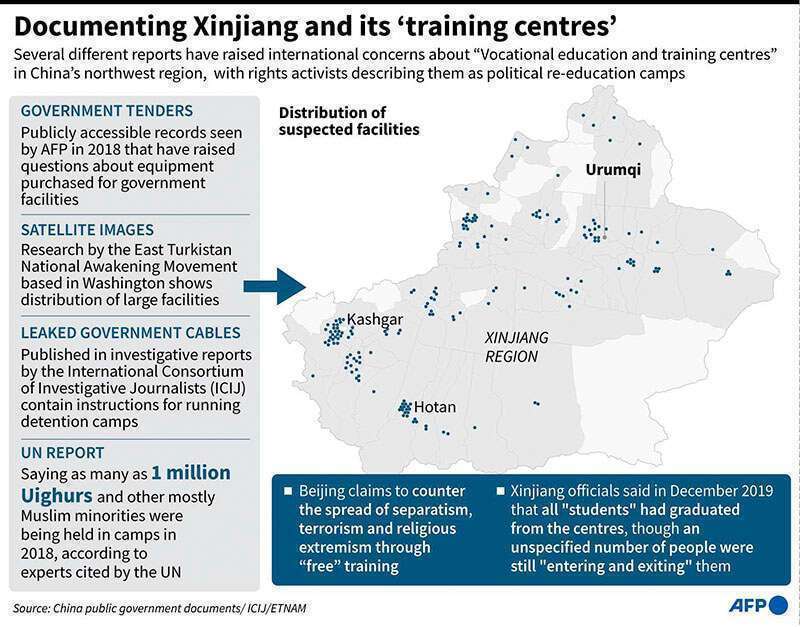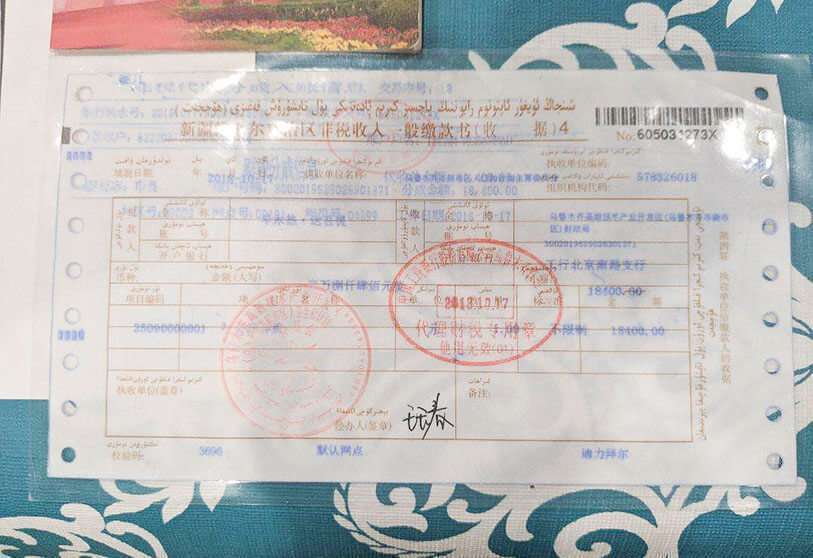Turkey sends Uighur refugees to China

Turkey is sending Uighur refugees to China, where they face harsh imprisonment and persecution, according to a report in The Telegraph. The Eurasian country is reportedly using the route of third countries such as Tajikistan to send members of this Muslim minority who are being coerced by the Chinese communist regime.
Turkish President Recep Tayyip Erdogan "is helping China to repatriate Muslim dissidents by sending them to third countries before they return to China," according to The Telegraph.
Faced with this problem, the United States has demanded that China stop its efforts to "coerce" Uighur Muslims who have fled the country with the aim of returning, as a U.S. State Department spokesman confirmed to Al-Arabiya English on Monday.

"The United States will continue to call on the People's Republic of China to immediately end its campaign of repression in Xinjiang, release all those arbitrarily detained and cease efforts to force members of Muslim minority groups residing abroad to return to China to face an uncertain fate," the U.S. State Department source said.
A Uighur minority suffering from Chinese pressure to renounce their religious identity, including by passing through what are gently referred to as "re-education camps". Meanwhile, Beijing considers that many Uyghurs are extremists and states that they are dangerous for Chinese national security.

In the past, Recep Tayyip Erdogan, who recognizes himself as a global Islamic leader, called Chinese actions against Uyghur Muslims in China "genocide". But recently his government stopped opposing China's treatment of Uyghurs, a move which, according to The Telegraph, is probably economically motivated and stems from Ankara's desire for China to invest in Turkey.
Tajikistan is one of the intermediate places of passage that Turkey would use to transfer Uighurs to China, according to The Telegraph.
The British media referred to the story of Aimuzi Kuwanhan, 59, a Uighur person who fled China and sought refuge in Turkey to live in state-run housing. After he disappeared last summer, his trail was followed to a detention centre in the Turkish city of Izmir, before he was extradited to Tajikistan, according to The Telegraph, which quoted a lawyer hired by his family. "Sources who knew Kuwahan say he was destined for China from there," the newspaper said. Another Uighur woman, Zinntegul Tursun, also was deported from Turkey to Tajikistan to China last year, according to the British newspaper.

These are not the only cases. The U.S. National Public Radio reported in March that Uighur refugee Abdurehim Imin Parach, a staunch opponent of the Chinese regime, was arrested in Istanbul by Turkish police who "urged him not to speak out against China. "I am not sure if China is directly pressuring the Turkish government to control the Uighurs here," Parach said in an interview with NPR, "or if Chinese agents have infiltrated Turkish society to frame us as terrorists.
The Uyghur population, an ethnic minority in China, is mostly Muslim and resides in the northwestern region of Xinjiang, which borders many countries, including Tajikistan. Since 2017, the Chinese government has cracked down on the community by detaining more than 1 million Uighur Muslims in "re-education camps," according to U.S. and U.N. estimates.

Accused of extremism, Beijing is detaining them by forcing them to renounce Islam and live in prison conditions in the detention centres, as various media have indicated. Meanwhile, when the Chinese government has been accused of repeated violations of the human rights of the Uighurs, the spokespersons of the Chinese regime have defended themselves by saying that the measures taken are part of a campaign against jihadist terrorism. Although it is true that some Uyghur armed organizations have indeed been qualified as terrorists by the United Nations or the United States, the truth is that the official policy towards all the members of this ethnic group seems quite disproportionate in this sense.








